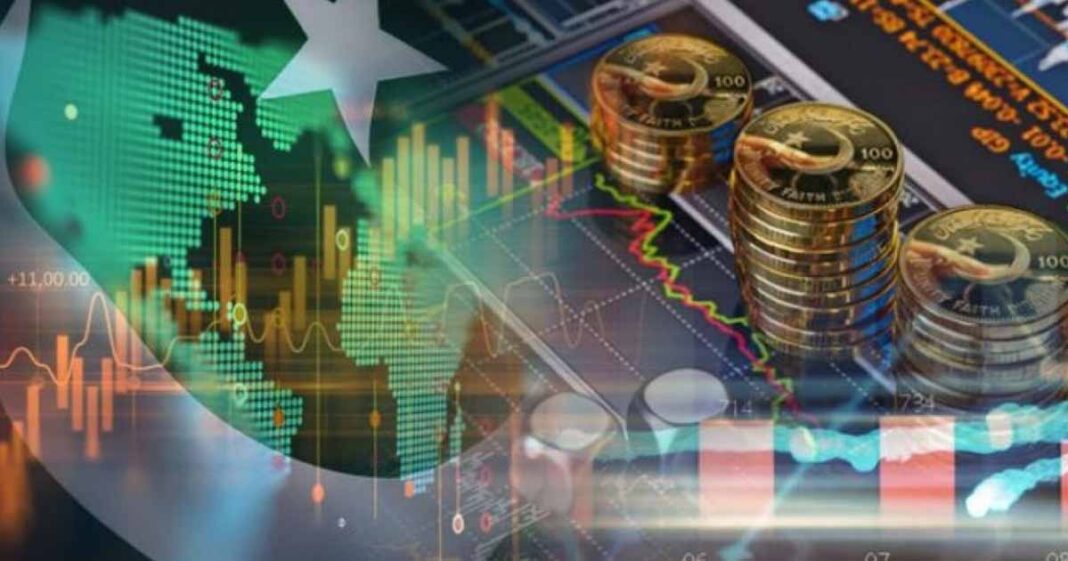By: Sami ul Haq

Historically, the term “banana republic” is commonly used to refer to a politically unstable country that relies heavily on the export of a single product, such as bananas or other agricultural products, to support its economy. These countries are often politically and economically under the influence of foreign powers. Banana republics generally have a clear social and economic divide. A small ruling class owns and controls wealth and resources. But the most important question arises here, where did the term Banana Republic come from? And why isn’t it called Apple Republic or something? The term republic was first used by an American writer, O Henry, in his book, published in 1904. He used this term for a fictional country, Anchuria, but he was referring to a country in Central America, Honduras.
In the early 1880s, a young American named Andrew Preston visited the port of Boston to buy fruits and vegetables imported from other countries. He was a junior assistant to a large vegetable and fruit seller, and these people used to sell fruits and vegetables from different parts of the world to America. Interestingly, before the 1880s, the American public was not aware of the banana fruit. Because bananas were not grown in the US at that time and the US did not import bananas from any other country until now, the American people were deprived of eating bananas until now. The first time a ship captain named Lorenzo Baker bought some bananas from Jamaica, he sold them in America at a good profit. The American people liked this fruit (bananas) very much and thus the demand for bananas increased. Andrew Preston saw great potential in this banana business and in 1885, he raised capital from various sources and founded the Boston Fruit Company with Lorenzo Baker. Baker purchased bananas from various countries in the Caribbean, while Preston supplied them throughout the United States. Boston Fruit laid the foundation for large-scale refrigerated shipping by establishing a chain of cold storage warehouses along shipping routes from ports to railroad depots. And so, in a very short time, this company established a banana supply line to the entire United States. America’s own soil was not conducive to banana cultivation but the soil and climate of Central American countries such as Panama, Costa Rica, and Honduras were suitable for banana production. Therefore, various American companies started investing in banana cultivation there. Meanwhile, a businessman named Minor Keith founded the Tropical trading and transport company, which invested heavily in banana cultivation in these countries. In 1899, Boston Fruit and Tropical Trading Company merged to form a new company named United Fruit Company. The same company is known today as Chiquita. Within a short time, United Fruit, along with two other companies, Standard Fruits and Cuyamel Fruits had dominated banana cultivation in Central American countries. To expand their business, these companies also entered into various agreements with local governments. Because the governments there were facing a severe shortage of capital and infrastructure at that time, these companies entered various types of contracts in different countries. For example, Costa Rica, which was a very poor country, gave Minor Keith’s company 800,000 acres of land on a 99-year lease in exchange for the construction of a railway track from the capital San Jose to the nearest port. Some similar agreements were made by these companies with other countries as well. Thus, with the passage of time, the influence of these companies increased in these countries. In 1930, the United Fruit Company had become the owner of 3.5 million acres of land in these countries Similarly, Samuel Zemurray, owner of the Cuyamel Fruit Company, also cultivated bananas extensively in Honduras and he was there famous as Banana Man. Over time, his influence in Honduran politics also grew enormously. Even the military of 1911 was heavily influenced by Zemurray, which resulted in the overthrow of a democratic government and its replacement by a military government that protected the interests of these foreign companies rather than the country. The result was political instability and economic stagnation in the country, increasing foreign debt, further weakened the puppet government and empowering these companies. The Honduran government was now left with only one option to deal with such a situation, and that was to hand over its economy to these big companies involved in the business of banana fruit and friends, this is exactly what happened, that is, the economy of Honduras went to these companies and thus the first banana republic emerged in front of the world as Honduras.
A defining characteristic of the Banana Republic is its excessive dependence on the export of a single product. These countries often lack financial diversity, which makes them vulnerable to fluctuations in international markets Exports of bananas or other agricultural products dominate their economy, leading to a lack of industrial development and limited opportunities for sustainable development. Foreign influence Banana Republics are often subject to foreign influence, both economically and politically, as we have seen United Fruit and the Cuyamel Fruit Company, historically had considerable power and influence in Central American countries. These companies often take advantage of weak regulatory frameworks and close ties with ruling elites to exploit domestic resources and labor and workers. This foreign domination ultimately increases the economic and political instability of the country, which violates the fundamental rights of the people. Political instability Political instability is another hallmark of a banana republic. These nations often experience coups and dictatorships. Power is held in the hands of a few elites, often supported by foreign powers, which leads to corruption, nepotism, and suppression of the democratic process Absence of strong national institutions and absence of rule of law leads to weakness of political system. Social Inequality, Banana republics generally show remarkable social inequality. The economic benefits of exporting one or a few commodities rarely reach the general population Wealth and resources are concentrated in the hands of a small elite, while most of the population faces poverty, limited access to basic amenities and lack of social mobility. This grossly inequitable distribution of wealth further fuels social unrest and perpetuates an endless cycle of inequality. Weak Institutions and Governance Institutions and governance structures in Bana Republic are often weak and ineffective. Corruption, lack of impartiality and transparency are common, and hence undermining public trust in government. In such countries, the judicial system can be compromised, leaving the powerful unaccountable for their actions. These factors contribute to a general sense of lawlessness and hinder the establishment of stable democratic institutions. Economic instability in general is clearly visible in the Banana Republic. Due to bad governance and political instability, such countries also suffer from economic instability due to which they get stuck in the quagmire of foreign debt. In terms of internal and external financial payments, such countries often suffer from circular debt and balance-of-payment crises.
Is Pakistan a Banana Republic? The question arises whether Pakistan meets the definition of a Banana Republic. There is no doubt that Pakistan is suffering from political instability, bad governance, social inequality, and to some extent foreign influence Pakistan is also suffering from severe financial crisis and often suffers from revolving credit and balance of payment crises. In Pakistan too, only a few people are seen as the axis of power and the politics and government of Pakistan revolve around these people. But in retrospect, the conditions of Pakistan and Honduras at that time are completely different. Pakistan is rich in natural resources, advanced in agriculture and a large part of the population consists of youth and educated middle class. Pakistan’s economy is not dependent on a single export, rather Pakistan exports a wide variety of goods including agriculture, textiles, and sports goods. and still has a large potential for improvement and hence we cannot say that Pakistan is a Banana Republic. Honduras is still a major exporter of bananas but now it also exports other goods such as coffee, palm oil, precious stones, and products related to the textile industry. Overall, their economy is still very weak, but now it is not labeled as a banana republic.
In short, Economic dependence on a single product, foreign influence, political instability, social inequality, and weak national institutions are the characteristics of a banana republic. These countries face significant challenges in achieving sustainable development and improving the lives of their citizens. Efforts to diversify the economy, promote transparency and accountability, strengthen institutions, and reduce dependence on a single commodity are needed to shed the label of banana republic. Through these measures can such countries move towards a more stable and prosperous future for their people.
The writer is a student of International Relations. He can be reached at [email protected]






